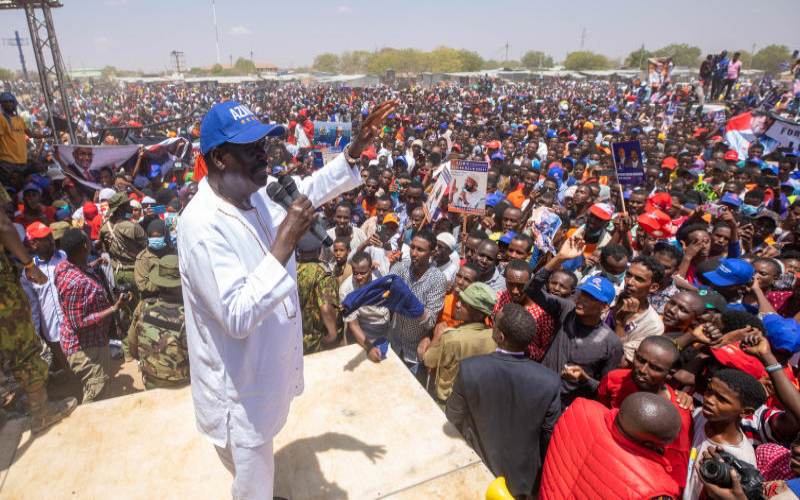×
The Standard e-Paper
Smart Minds Choose Us

ODM leader Raila Odinga addresses the crowd during a rally in Wajir Town. [Emmanuel Wanson, Standard]
Orange Democratic Movement (ODM) leader Raila Odinga has apologised for madoadoa remarks he made in Wajir County on Wednesday, March 9.